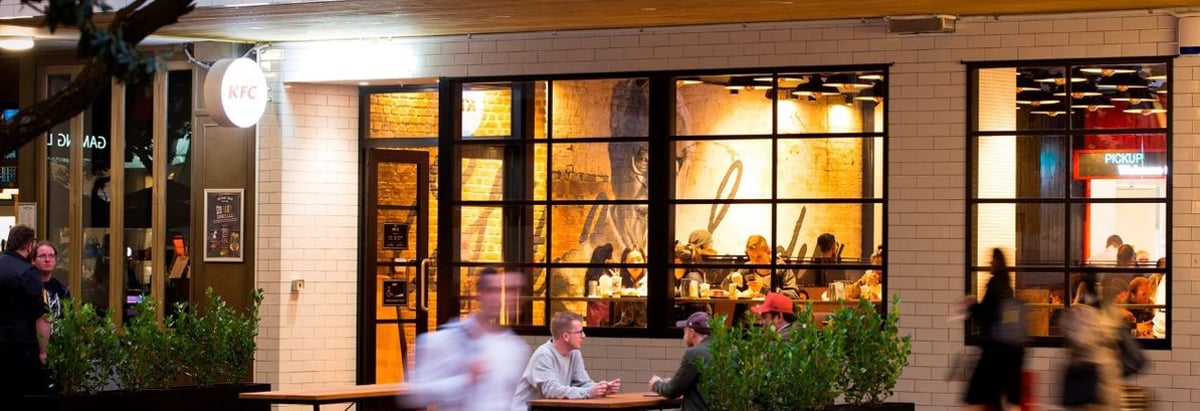Stock Analysis
- New Zealand
- /
- Hospitality
- /
- NZSE:RBD
Here's What To Make Of Restaurant Brands New Zealand's (NZSE:RBD) Decelerating Rates Of Return

If we want to find a stock that could multiply over the long term, what are the underlying trends we should look for? Ideally, a business will show two trends; firstly a growing return on capital employed (ROCE) and secondly, an increasing amount of capital employed. This shows us that it's a compounding machine, able to continually reinvest its earnings back into the business and generate higher returns. Having said that, from a first glance at Restaurant Brands New Zealand (NZSE:RBD) we aren't jumping out of our chairs at how returns are trending, but let's have a deeper look.
Return On Capital Employed (ROCE): What Is It?
For those that aren't sure what ROCE is, it measures the amount of pre-tax profits a company can generate from the capital employed in its business. To calculate this metric for Restaurant Brands New Zealand, this is the formula:
Return on Capital Employed = Earnings Before Interest and Tax (EBIT) ÷ (Total Assets - Current Liabilities)
0.079 = NZ$101m ÷ (NZ$1.4b - NZ$167m) (Based on the trailing twelve months to June 2024).
Therefore, Restaurant Brands New Zealand has an ROCE of 7.9%. In absolute terms, that's a low return but it's around the Hospitality industry average of 9.3%.
Check out our latest analysis for Restaurant Brands New Zealand
In the above chart we have measured Restaurant Brands New Zealand's prior ROCE against its prior performance, but the future is arguably more important. If you'd like to see what analysts are forecasting going forward, you should check out our free analyst report for Restaurant Brands New Zealand .
So How Is Restaurant Brands New Zealand's ROCE Trending?
In terms of Restaurant Brands New Zealand's historical ROCE trend, it doesn't exactly demand attention. The company has employed 67% more capital in the last five years, and the returns on that capital have remained stable at 7.9%. This poor ROCE doesn't inspire confidence right now, and with the increase in capital employed, it's evident that the business isn't deploying the funds into high return investments.
The Key Takeaway
As we've seen above, Restaurant Brands New Zealand's returns on capital haven't increased but it is reinvesting in the business. Since the stock has declined 67% over the last five years, investors may not be too optimistic on this trend improving either. All in all, the inherent trends aren't typical of multi-baggers, so if that's what you're after, we think you might have more luck elsewhere.
On a separate note, we've found 1 warning sign for Restaurant Brands New Zealand you'll probably want to know about.
While Restaurant Brands New Zealand may not currently earn the highest returns, we've compiled a list of companies that currently earn more than 25% return on equity. Check out this free list here.
New: AI Stock Screener & Alerts
Our new AI Stock Screener scans the market every day to uncover opportunities.
• Dividend Powerhouses (3%+ Yield)
• Undervalued Small Caps with Insider Buying
• High growth Tech and AI Companies
Or build your own from over 50 metrics.
Have feedback on this article? Concerned about the content? Get in touch with us directly. Alternatively, email editorial-team (at) simplywallst.com.
This article by Simply Wall St is general in nature. We provide commentary based on historical data and analyst forecasts only using an unbiased methodology and our articles are not intended to be financial advice. It does not constitute a recommendation to buy or sell any stock, and does not take account of your objectives, or your financial situation. We aim to bring you long-term focused analysis driven by fundamental data. Note that our analysis may not factor in the latest price-sensitive company announcements or qualitative material. Simply Wall St has no position in any stocks mentioned.
About NZSE:RBD
Restaurant Brands New Zealand
Operates quick service and takeaway restaurants in New Zealand, Australia, California, Hawaii, Saipan, and Guam.

